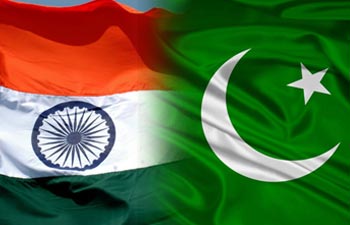Reopening of Pakistan’s Airspace: A Bad Omen for India? Implications for Iran and Afghanistan

The reopening of Pakistani airspace to civil aviation was timed to coincide with PM Khan’s upcoming trip to the US, which is an extremely bad omen for India because it suggests that the resumption of its Afghan air corridor across Pakistani territory might be compensation for the US lifting its sanctions waiver on Chabahar in exchange for Islamabad continuing to do all that it can to encourage the Afghan peace process, which Washington prioritizes much more than ensuring New Delhi’s trade with Central Asia and the same Islamic Republic that Trump is doing all that he can to isolate.
***
On the surface, the reopening of Pakistani airspace to civil aviation might seem like a purely apolitical event that most people would be forgiven for thinking was driven more by the economic motivations of recovering the nearly $100 million in overflight fees that it lost during its nearly five-month-long closure than anything else, but the reality is that this move might actually be part of the global pivot state‘s grand strategy to control its Indian rival’s access to Afghanistan and the rest of Central Asia.
New Delhi’s much-touted investments in the Iranian port of Chabahar are thought to have precluded any future possibility of Islamabad using its connective geography as leverage over its neighbor, but that vision only applies in the event that the US’ new military-strategic ally has the political will to defy Washington’s sanctions against the Islamic Republic. Thus far, the US has issued a sanctions waiver for India’s Chabahar activities because of the importance that it places on ensuring New Delhi’s trade with Afghanistan and Central Asia as part of its overall plan to use the South Asian state to “contain” China there, but that strategic calculation could change real soon.
Trump is very serious about doing all that he can to isolate Iran as part of his Hybrid War against it to exacerbate his target’s ongoing economic crisis to the point of catalyzing a Color Revolution, and the lifting of his administration’s previous sanctions waiver on the import of that country’s oil at the beginning of May saw India obediently comply with Washington’s demand to cease purchasing this resource from the Islamic Republic despite previously promising to only abide by UNSC sanctions in this respect and hitherto being Tehran’s second-largest customer. The reason why India so quickly folded in the face of American pressure is because the US was its second-largest trading partner at the time (it’s since surpassed China to become number one as of last month) and Modi couldn’t afford to have his struggling economy sanctioned by it (especially not in what was at that time the last weeks of his ultimately successful re-election campaign). Given the precedent that’s been established, India might very well submit to the US’ sanctions regime once again if Washington lifts its waiver on doing business in Chabahar, which is exactly what Pakistan wants to have happen.
The ongoing free trade talks between the US and India have seen both Great Powers play “hardball”with one another, though the overall trajectory of their discussions strongly suggests that a deal will be reached sooner or later, one which the US’ billionaire president would obviously prefer to be in his country’s favor. Since other forms of pressure have yet to advance this outcome, it’s very possible that lifting the sanctions waiver on Chabahar might be the next card that Trump will play, though considering that his administration issued the waiver in the first place in order to ensure India’s uninterrupted trade with Afghanistan and Central Asia as part of both countries’ joint strategy to “contain” China there, the US would need to have a backup plan if it were do to that, ergo the reopening of Pakistani airspace to civil aviation. That’s not all to suggest that Pakistan is contributing to China’s “containment’ by doing so, but rather that it’s cleverly improving its communist ally’s position in the region by obtaining control over their rival’s access there as a quid-pro-quo with the US for continuing to do all that it can to encourage the Afghan peace process that all three of them support.
If pressed to choose, the clinching of a peace deal in Afghanistan and subsequent large-scale military drawdown (if not full-on withdrawal) from this mindbogglingly expensive multi-trillion-dollar quagmire is much more of a priority for the US than facilitating New Delhi’s trade with Afghanistan, Central Asia, and the same Islamic Republic that Trump is doing all that he can to isolate, though America can proverbially “have its cake and eat it too” if Pakistan makes it the right proposal. PM Khan might guarantee the aforementioned support for the Afghan peace process during his upcoming negotiations with Trump in exchange for his counterpart promising to eventually lift the sanctions waiver on Chabahar, which would also accomplish the US’ other two strategic objectives of putting more pressure on India to capitulate to its trade demands and increasing Iran’s isolation. Nevertheless, the US’ Indian ally would still have access to Afghanistan via Pakistan’s newly reopened airspace, but Islamabad would be able to cut it off at any time if the neighboring rogue state provokes another regional crisis, with this scenario representing a win-win for Pakistan, the US, and even China, but a lose-lose for India.
*
Note to readers: please click the share buttons above or below. Forward this article to your email lists. Crosspost on your blog site, internet forums. etc.
Andrew Korybko is an American Moscow-based political analyst specializing in the relationship between the US strategy in Afro-Eurasia, China’s One Belt One Road global vision of New Silk Road connectivity, and Hybrid Warfare. He is a frequent contributor to Global Research.

